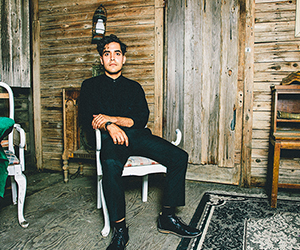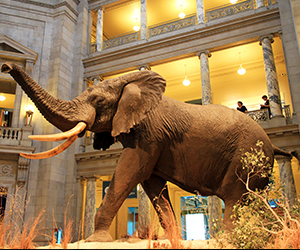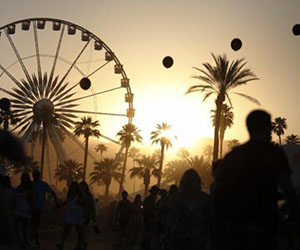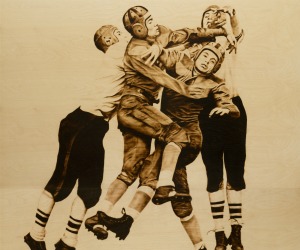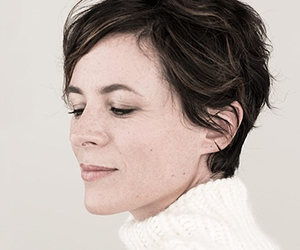
Monterrey-born Alan Palomo was raised in Texas on a musical diet of yacht rock, R&B hits, New Order, and his father’s brand of Mexican pop. The intimate narrative informing his sonic path has played out like a mellow acid trip that’s ultimately led him to a state of clarity and focus. This clarity sees Alan moving on to pursue dreams outside music, specifically outside Neon Indian. During his recent maze run of tour dates through Japan in support of the latest and what may be the final Neon Indian project, we caught up with Alan to dig a little deeper into his story.
I read your father was a Mexican pop music star for a time. Take me back to when you became aware of and/or inspired by your father’s music career—was he a major influence in your decision to become a musician?
I remember watching TV while my mom taped some performance of his. We were allowed to stay up specifically to see this episode of “Sábado Gigante,” a long-running syndicated variety show. When I asked if the trumpet-playing monkey in it was real, he said yes. His line of work always seemed steeped in mystery to me at that age. He’d come home late at night with a guitar slung across his back, his suit jackets always having that club smell I’m now all too familiar with. It didn’t really inform some decision to pursue music, although when I started, I realized I had osmotically developed a sensibility for music through the two decades of seeing him and my brother at work.
At what point did you become interested in making music? Do you recall a moment, phase, epiphany, or revelation?
My fascination happened in a slow gradient, but the tipping point that really sealed my fate was sitting in a lit mag class while a friend played some New Order singles. “Bizarre Love Triangle” came on, and it stirred some memory of hearing it in my cousin’s room when I was like 3. He had it on while he played Sega Genesis with the sound off. I realized it had always been my favorite song, occasionally playing in malls or passing cars, and I just didn’t recognize it.
What’s been your most formative musical experience thus far?
When I moved to Denton, I had already met a small crew of musicians visiting this college girl I knew. I started surfing their couch on the regular when my dorm turned boring and claustrophobic. The house parties were totally exciting to me. It seemed like the town’s modest size made for a pretty unified community. You’d meet everyone in the span of a weekend. I met a lot of bands and even more specifically I met the electronic musicians who’d help me develop a voice with my instruments. My old bandmate Grey, who very unfortunately passed away last year, was one of the first. The members of Ghosthustler (my first band) and I moved into the guesthouse I was crashing at and quickly started making music together. I think the pervading alt-country vibe made electronic music a very alien niche there. The upside was that the few of us that existed knew each other very well and traded music and production knowhow constantly. It was easily the most communal, formative musical experience of my life.
There are so many layers to your sound. I hear boogie funk, soul, R&B, new wave, dub, hip-hop, house, pop, yacht rock—growing up, who were the artists and bands that made a lasting impression?
I’ve always been a fan of super-eclectic DJs… people like Optimo or Traxman, who span thirty years of style and mood in a matter of an hour and somehow always find their link to the present. It’s just more enriching for me. I grew up on a lot of yacht rock mostly. My dad loved Chicago, Eric Clapton, and the Doobie Brothers. Lots of Rhodes pianos and falsetto. I guess it permeated its way into my musical DNA by way of my old bedroom boom box.
When MTV 2 launched in 6th grade, I remember recognizing a lot of those palettes in the Daft Punk Discovery-era videos. I guess that’s probably the first time I entered some nascent interest in music that wasn’t already just lying around the house. But I mostly didn’t care about music at all until I hit high school. Then the need for music became insatiable.
Your sound is referred to as synthpop, chillwave, or electropop. Do genre labels bother you?
It seems like electronic music can be a bit of a losing battle sometimes. Music is tremendously topical and obsessed with categorization. Things like Soundcloud and the democratization of accessibility has rendered genre as completely ridiculous. However that doesn’t stop journalists, or really just bloggers now to take an incessant crack at finding new names for stuff. I was actually pretty happy when chillwave wasn’t the hip editorial MO anymore. The cognoscenti had moved on. It gave me carte blanche to just write and have fun without worrying about any expectations. The irony now is that people approach me at shows and ask me why I turned vaporwave and I don’t even know what that means? In the end, I guess you can take the process of making music very serious but certainly not yourself.
I read about your laptop incident a few years ago where you lost an entire album worth of demos. That makes me think of silver linings—you ended up doing more film score work and we may not have ended up with this new Neon record as is…
I definitely felt like it helped me in the abstract. I don’t think I had the skill set then to make the kind of album I was after. There were a lot of growing pains involved to become more studio literate and work at having my hands keep up with my head. Also, had I been married to those demos I don’t think I would have grown nearly as much as I did undertaking VEGA INTL. Night School. It just wouldn’t have been the same. The only ones I was able to reconstruct from a nagging memory years later were “Slumlord” and “Street Level.” The fact that I remembered them so vividly almost proved that they had earned their right to exist.
Do you think you’ll ever stop making music?
As Neon Indian? Yea, definitely. I don’t have any plans to make another album at the moment, and to some extent, this record feels like a nice bookend to a trilogy of things I wanted to say in music since I began. If the project ever continued beyond this, it would have to undergo some massive aesthetic overhaul to remain interesting to me… I think about my life and all the things I’d like to do that aren’t related to music, and I land on the truism that it should only happen when the idea is there and the urge is too insatiable. I would hope fans want more than for me to just re-write my first record when I’m strapped for cash… a prospect I just never found worth their time or mine.
What’s next for Alan Palomo?
I originally studied film. I want to direct

Photography by Pooneh Ghana

